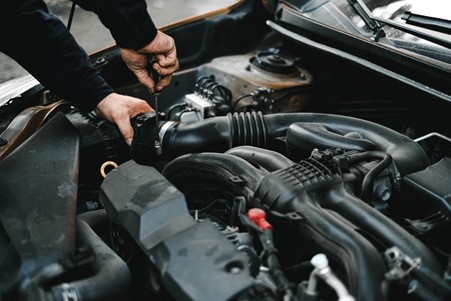
A First Time Driver’s Guide to Avoiding Expensive Car Repairs
Posted in: Driving Tips.
Photo by Anna Shvets from Pexels
For most first-time drivers, the main goal is to save up for the car itself. It can take months or years, depending on your circumstance.
Then, once they have the car, the ‘hidden’ costs or the typically unthought-of costs crop up.
To keep your car running well, without costing the earth, here are a few things you can do as well as some of the most expensive repairs that a driver might encounter.
Skipping Repairs
One of the biggest culprits for costly repairs is skipping the small ones. When the engine light comes on or other lights on the dashboard – ignoring them can cause more damage to the vehicle.
The manual that comes with the car can give you the information you need about each light, and you can find most manuals online if you don’t have the original. There are often YouTube videos that cover everything from spark plugs to engine rebuilds.
Schedule
If you purchase a second-hand car, make sure it comes with a complete service history. This will give you the details on the maintenance schedule before the car is yours. However, if you don’t have any of the paperwork, refer to the manual and book your car in for servicing asap.
Warranties
When you are considering buying a car, you should ask for all of the warranties for any repairs and replacements, including tire warranties, parts, work, and others.
This simple check will put you in the position to get repairs or replacements for free or at a lesser cost if something isn’t working.
Before buying your first car, even if it is new, you should start a small savings fund to cover the cost of replacing and repairing almost anything.
Some repair costs are considered the most expensive, and it is these that you should have a fund for.
Brakes
Your brakes are one of the most important safety aspects of your car. Changing your brake fluid regularly can help you reduce the amount of water absorbed. Brake fluid is hygroscopic, and the more water it absorbs over time, the more likely it is that it will rote your brake lines from the inside out.
Depending on the damage, expect to pay between $250 to $500 for a brake repair.
Engine Replacement
Something to keep in mind is that many cars will have the capacity to burn more oil than it is in the engine. This means your car runs out of oil before you have your next oil change. If your car keeps running without any oil – and you perhaps ignore the light on the dashboard, then the engine will suffer severe damage.
You can avoid this by regularly checking your oil and topping up when it gets low.
An oil change is relatively cheap when done at home and might cost no more than $50; however, an engine replacement, if you don’t maintain the oil levels, can be anywhere between $1000 to $7500 depending on the make and model of the car.
Suspension
Driving carefully is one of the key ways to reduce the likelihood of needing a suspension system replacement. Potholes in the road are common culprits, so avoiding them is in your best interest.
Equally, when you see bags in the road, you can’t be sure that they aren’t filled with sharps or hard materials. Carefully moving out the way where possible is essential.
Driving carefully costs nothing, but a suspension system replacement might run you up to $5000.
Transmission
The moment you have transmission issues, you can’t drive. The easiest way to maintain your transmission to the best of your abilities is to make sure you top or change your transmission fuel regularly. When transmission fuel gets grimy, it can erode the transmission system.
A transmission flue change will cost less than $250, whereas a replacement might cost up to $4000 depending on driving a stick or automatic.
Finding online retailers and mechanics that you trust is a must. This will mean you get the advice and repairs or replacements you need without being upsold things you just don’t need.
For more maintenance tips and tricks to help you keep your car healthy, check out: Vehicle Maintenance Tips and Tricks.
Tags: A First Time Driver’s Guide to Avoiding Expensive Car Repairs